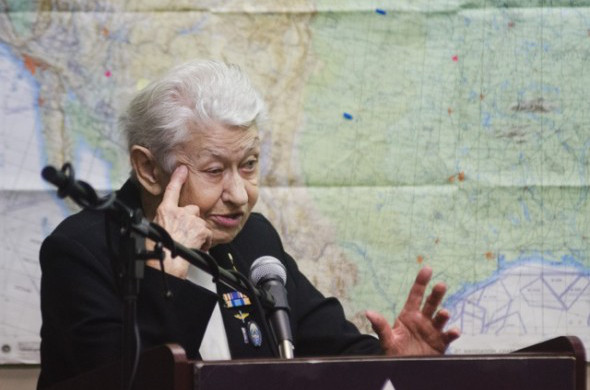Aviation Pioneer Blazed a Trail that Still Inspires
03.10.14 · Greteman Group
Mary Feik – still quick-witted and feisty at going on 90 – says she’s done nothing special in her life.
But her 45-minute talk this past weekend for Women in Aviation Day at the Kansas Aviation Museum – touching on just a few of her accomplishments and experiences – indicates otherwise. And the audience itself exemplified perhaps her greatest legacy. Dozens of women and girls joined the men and boys packing the room, eager to hear her recount the exploits of seven decades working with and flying planes.
Her long career began in the 1930s learning to fix aircraft engines at an Army Air Corps base. She served as a lead engineer during World War II, helping ensure that B-29 bombers and other warbirds were airworthy. Logged thousands of hours as a maintenance engineer and pilot during and after the war. Served as a technician for three decades on U.S. air bases. Helped restore vintage aircraft for the National Air and Space Museum. Actively participated in the Civil Air Patrol, rising to the rank of colonel. For much of that time, Feik worked exclusively with men.
At the aviation museum, she spoke to an appreciative audience, but perhaps most captivated of all: the many girls and young women who were there to stoke their dreams of a life in aviation. Thanks to remarkable women like Mary Feik, those dreams today are much more likely to become reality.
Pictured above: There’s no shortage of colorful anecdotes when aviation pioneer Mary Feik takes the podium. Here she speaks at the Kansas Aviation Museum during the museum’s 2014 celebration of Women in Aviation Day.
